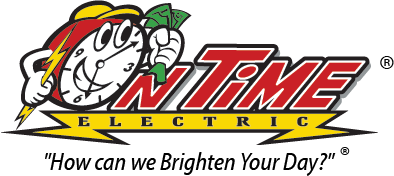EV Car Charger Installlation
DID YOU BUY A NEW ELECTRIC CAR?
EV CAR CHARGER INSTALLATION.
CALL NOW TO SCHEDULE EV CAR CHARGER INSTALLATION SERVICES IN THE HOUSTON, TX AREA
Automakers are coming out with more electric cars and trucks that “skip the pump” every year. Skipping the pump means charging at home as about 95% of EV charging is completed at home. There are many EV Charging Stations to choose from, with configurations that can lead to faster charge times, and more freedom to enjoy the road.
Our Master Electrician can help you select the right EV home charging station for your needs and make installation simple. We have access to EV Charging Stations for ALL auto makes & models, including Mercedes, Audi, Ford (Mach-E & F150 Lightning), GM (Chevrolet Spark EV, Volt/Bolt), Nissan (Leaf), Volkswagen (e-Golf), Tesla (model 3, model X, model S), BMW (i3), Fiat (500e) and Kia (Soul EV). Contact us today to schedule a consultation and quote.
Rely on us to provide quick EV charger installation services in or around Houston, TX. No matter what problem you're facing, we can help you find a reasonable cost-effective solution.
Understanding Electric Car Chargers
Level 1 Electric Car Charging
The least-costly method to charge your electric car utilizes a standard electrical outlet, otherwise known as level 1 charging. The onboard electric charger built into your vehicle is used to plug into an electric socket. However, while level 1 charging is readily available, it charges at a rate of about 2 miles an hour of electricity. Therefore, if you have an electric car battery with a 200-mile range, it could take 100 hours to charge your car. Because of the long recharging time, level 1 charging is not recommended and is used as a last resort, assuming no better options are available.
Level 2 Electric Car Charging
The most common external charger is a level 2. Level 2 chargers are available throughout the country at hotels, malls, and even used in the home. Furthermore, level 2 chargers are a big step up from level 1 charging in that they can charge up to ten times faster. For example, a level 1 wall socket charges up to five miles per hour. Meanwhile, a level two charger can charge around 25 to 35 miles per hour. If you plan to add a level 2 external charger to your home, you will need a dedicated 240v line.
DC Fast Chargers Explained
DC Fast charging, or direct current fast charging, is the quickest way to charge your electric car. These external chargers run on between 400 v and 1000 v of electricity. Subsequently, these chargers can charge most electric vehicles to 80% battery capacity in about 20-40 minutes. DC chargers are commercially available nationwide but are too expensive for home use, with a price tag of around $50,000. Many companies provide their DC fast-charging network for public use for a fee. On average, expect to pay about twice what you pay home for a kilowatt of power. Companies like Electrify America and Tesla’s private Supercharger are all DC fast charging providers.
DC Fast Charging On the Road
While on the road using DC fast chargers when on the road is a positive experience. Think of DC fast-charging stations like gas stations for electric cars. Most DC fast-charge stations are near shopping malls or restaurants. So while you recharge your electric vehicle, you can take a bite to eat, take a bathroom break, or do some shopping. I recently took a road trip through the Mojave desert and Mesa, where I stopped at DC fast charge stations,
Home Electric Car Charging Basics
The average driver commutes around 29 miles per day. Most EV batteries have a driving range of over 200 miles, so they can handle their daily commute without charging. Therefore, electric vehicles do most of their charging at home overnight. Convenient home charging requires a level 2 external charger, which can recharge the typical electric car in around 8 hours.
How Much Will it Cost to Setup a Home Charger
Level 2 external chargers can range from $250 to $2,500. You can purchase a good EV charger for around $600. As for installation, you will need to hire an electrician. Angi says the national installation cost for installing your EV charging station is about $400 to $1,200
How Do I know where and when to Charge
Trip planning is relatively easy with electric cars. Within your vehicle’s infotainment system is trip planning software. For example, if you wanted to take a trip from Los Angeles to Las Vegas, your electric car would plan your route with stops at EV charging stations along the way. With most vehicles able to go 200 plus miles on a single full battery, when you stop to charge, it lines up pretty well with when you have to stop for food or a bio break.
Charge Type Determines What DC Fast Chargers You Can Use
One thing to keep in mind is not all chargers will work with every EV. Each car manufacturer supports a specific method for EV charging. For example, Tesla has its proprietary charge port, while the other car manufacturers either subscribe to the CCS standard or the CHadeMO. As a result, Tesla’s charge type can only work with Tesla’s DC fast cable attachment. Teslas can work with ChadeMo and CCS chargers with an optional cable attachment. As of today, outside of Tesla, many electric vehicles seem to be shifting toward the CCS standard.
